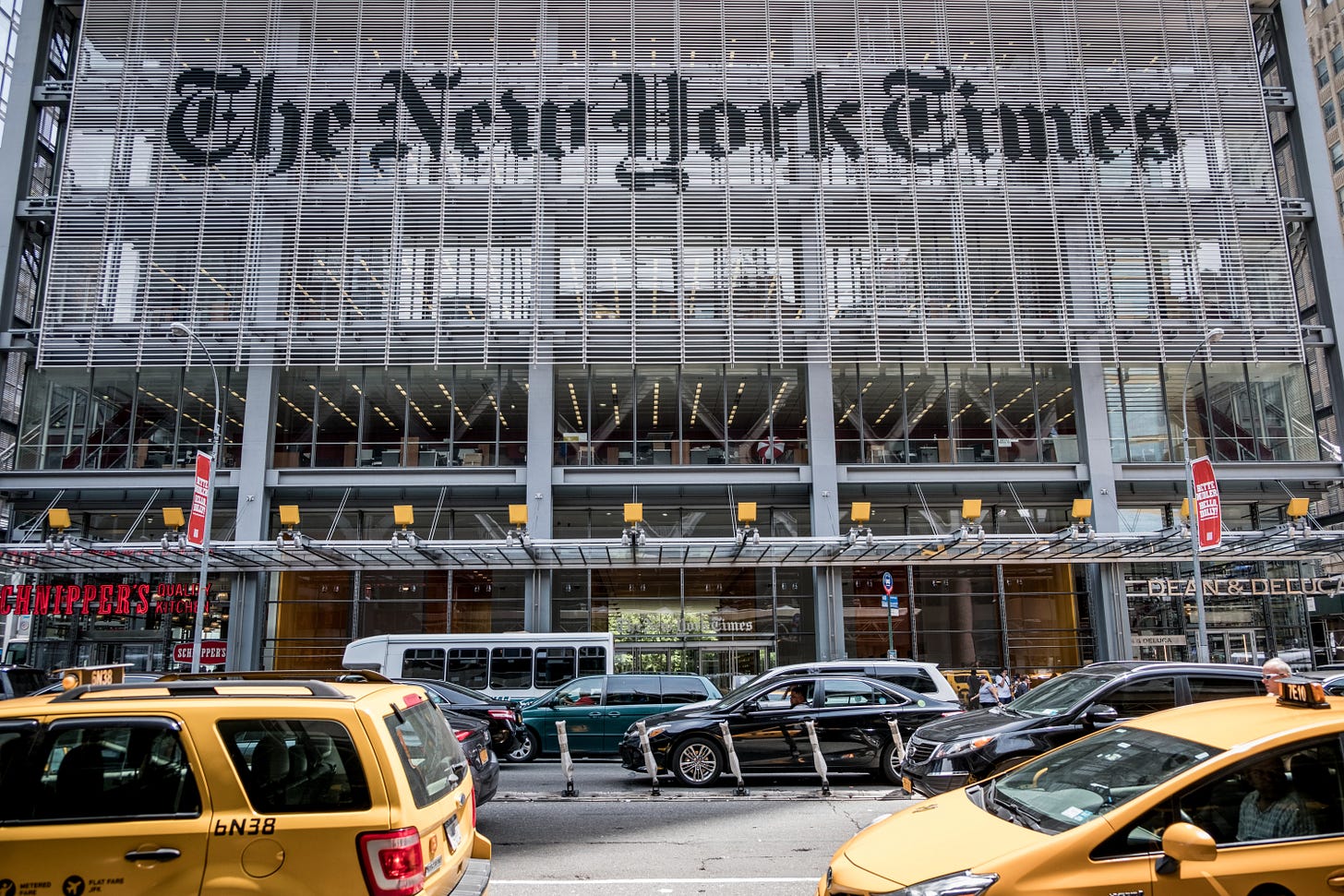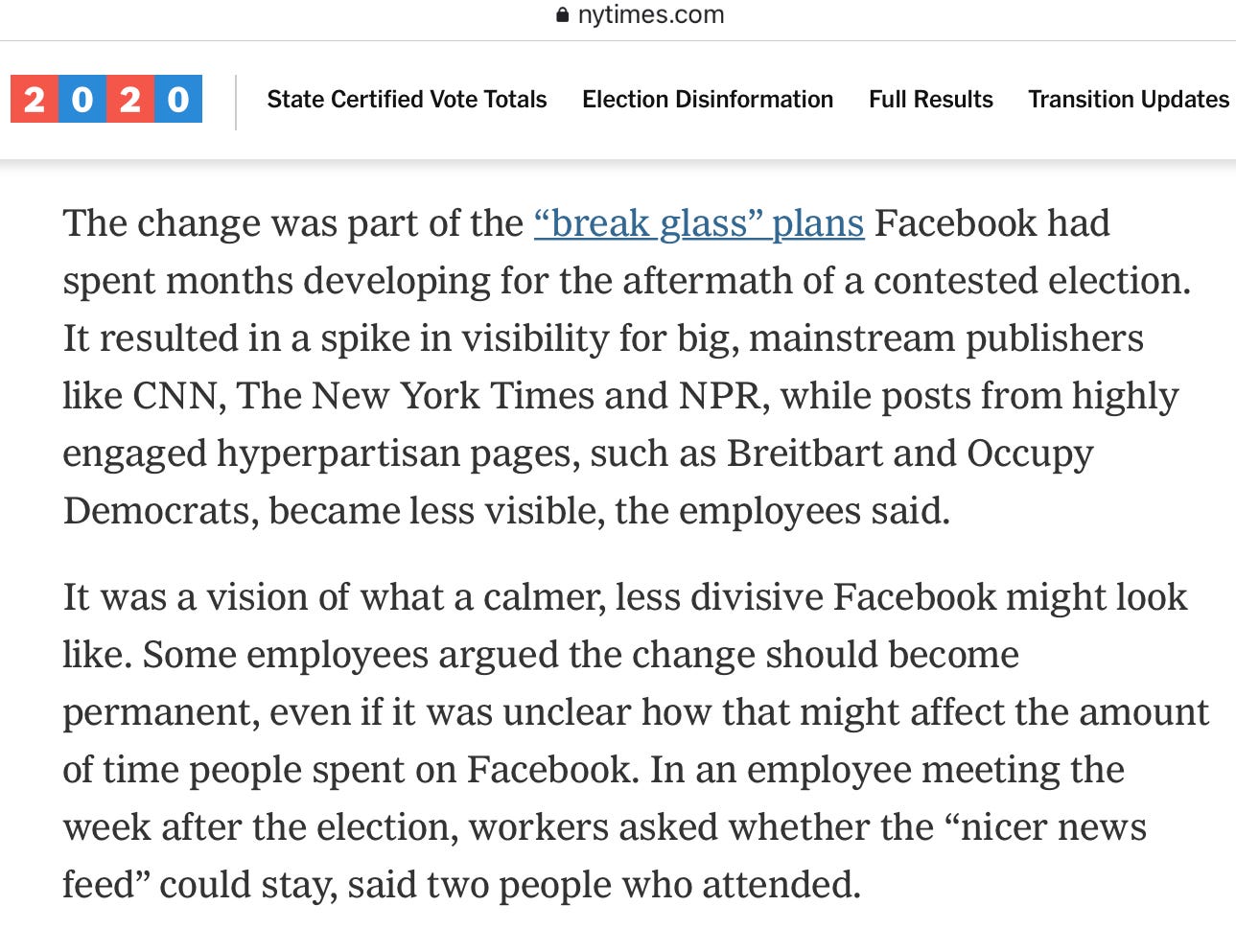
The most prolific activism demanding more Silicon Valley censorship is found in the nation’s largest news outlets: the media reporters of CNN, the “disinformation” unit of NBC News, and especially the tech reporters of The New York Times. That is where the most aggressive and sustained pro-internet-censorship campaigns are waged.
Due in part to a self-interested desire to re-establish their monopoly on discourse by crushing any independent or dissenting voices, and in part by a censorious and arrogant mindset which convinces them that only those of their worldview and pedigree have a right to be heard, they largely devote themselves to complaining that Facebook, Google and Twitter are not suppressing enough speech. It is hall-monitor tattletale whining masquerading as journalism: petulantly complaining that tech platforms are permitting speech that, in their view, ought instead be silenced.
In Tuesday’s New York Times, three of those censorious tech reporters — Kevin Roose, Mike Isaac, and Sheera Frenkel — published an article on Facebook’s post-election deliberations over how to alter its algorithms to prevent the spread of what they deem “misinformation” regarding the election. The most consequential change they implemented, The New York Times explained, was one in which “hyperpartisan pages” are repressed in favor of promoting “a spike in visibility for big, mainstream publishers like CNN, The New York Times and NPR” — a change the Paper of Record heralded as having fostered “a calmer, less divisive Facebook.”
More alarmingly, the NYT suggested (i.e., prayed) that these changes, designed by Facebook as an election-related emergency measure, would instead become permanent. Marvel at these two paragraphs and all of tenuous and self-serving assumptions buried in them:
The conceit that outlets like The New York Times, CNN and NPR are the alternatives to “hyper-partisan pages” is one you would be eager to believe, or at least want to induce others to believe, if you were a tech reporter at The New York Times, furious and hurt that millions upon millions of people would rather hear other voices than your own, and simply do not trust what you tell them. Inducing Facebook to manipulate the algorithmic underbelly of social media to artificially force your content down the throats of citizens who prefer to avoid it, while rendering your critics’ speech invisible — all in the name of reducing “hyper-partisanship,” “divisiveness,” and “misinformation” — is of course a highly desirable outcome for mainstream outlets like the NYT.
Continue Reading

